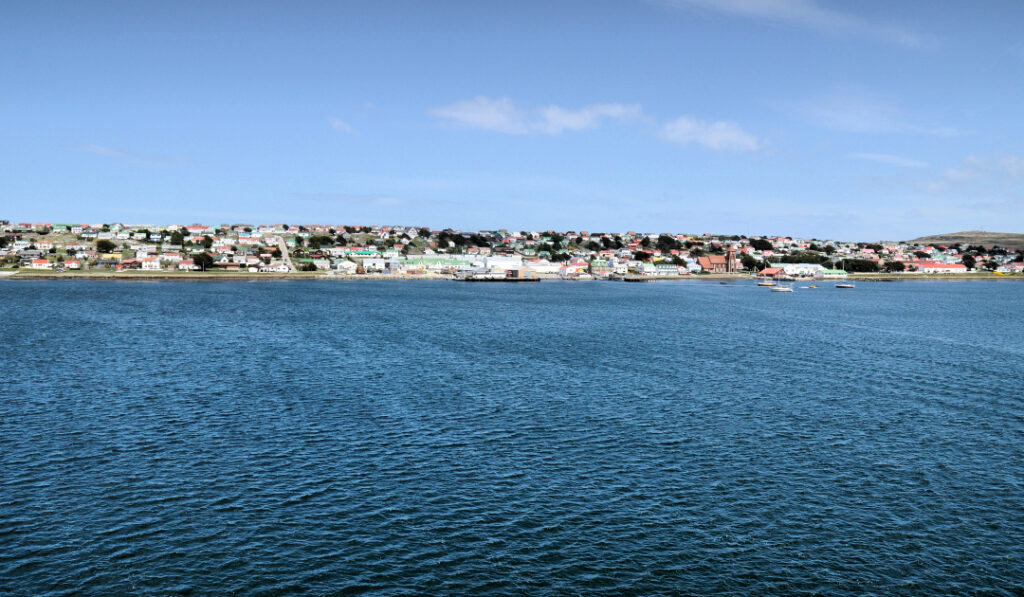UPDATE: SECOND CASE ON THE FALKLAND ISLANDS
As we have just learned, a second case of a Falkland Island resident has been made public. The person is already in quarantine. The person had returned from the UK on Monday and had been tested on return. Since all returnees from abroad must automatically go into quarantine and have a second test, there was no danger to the rest of the population. Dr Rebecca Edwards, the government’s health officer, also said the track-and-trace principle had worked and all passengers on the flight were informed already and also in quarantine, including airport staff. Barry Rowland, the chief executive of the Falkland Islands, announced new quarantine measures starting next Monday.

At the beginning of the global spread at the beginning of the year, the COVID pandemic had not reached a few regions. Most of them were in the polar regions. Entry bans for foreigners and lockdowns were issued. The national authorities thus tried to avoid the problem of reduced medical care. With success, the Falklands, Nunavut, Svalbard and Greenland had no or only a few cases among the population. But now, as in many other countries, the situation has changed and the first cases have emerged.
The Falkland Islands reported the first positive tested person in Stanley last Tuesday. In Nunavut, a total of 3 cases of COVID have been reported in two places in the population since last Friday. And in Greenland, a new case was discovered on Wednesday in Aasiaat, south of Ilulissat, bringing the total to 17 since the pandemic erupted. All COVID positive tested residents are in quarantine and have not yet had to be hospitalized. Nevertheless, the respective health authorities consider the situation to be worrying. The cases in Nunavut are in small communities west and south of the capital Iqaluit and thus further away from the best equipped hospital in Nunavut. In Greenland, too, the authorities are drawing attention to the fact that three cases have now emerged within a very short time.

In order to prevent the virus from spreading further, the local authorities in Rankin Inlet have imposed a partial lockdown and called on the population to leave the house only if absolutely necessary. Schools and college remain closed and stores have indicated restrictions on customer numbers. Nunavut’s health authorities strongly advise against travel to Rankin Inlet and Sanikiluaq. Another nurse for Rankin Inlet has already been organised and the situation is being closely watched, said Dr Michael Patterson, the health officer of the government. For Sanikiluaq, masks have been sent to the residents and there will be a close monitoring of the situation at the moment.

The authorities of the Falkland Islands have also announced measures to prevent it from spreading. But unlike Rankin Inlet, a lockdown is not in discussion currently. Instead, the authorities relie on personal responsibility and advise to follow the hygiene measures and to remain vigilant. However, there is still no reason to cancel meetings or order closings of schools and other public buildings. This means that the mine sweeping celebrations can still take place. But travel to the islands still imposes strict quarantine requirements and restrictions on entry in terms of numbers of people.

In Greenland, the cases that have now emerged are a warning sign for travel to and from Denmark. “It clearly shows the infection pressure that is now in Greenland. It is a logical consequence of the widespread infection that is now in Denmark,” the health authorities explain. The health authorities have isolated the positive cases and are once again urging all people to comply with hygiene rules and to cancel all non-essential trips to Denmark, including at Christmas. All arrivals to Greenland must undergo a Corona test on arrival and five days thereafter and go into quarantine in between.

With the cases in Nunavut and the Falkland Islands, Svalbard and Antarctica are now the last untouched polar regions. Trips to Antarctica are reserved only for essential station staff and selected researchers, and strict hygiene regulations, controls and quarantines are carried out. Svalbard itself currently is cut off from the outside world, as the Norwegian government warns against all non-essential domestic travel and is currently closing its borders to foreigners. In addition, the law for possible restrictions due to COVID-19 has been extended until June 1, 2021. Nevertheless, the authorities in Longyearbyen fear that it is no longer a question of “if”, but of “when”, until the virus has reached the archipelago. It is to be hoped that the answer to this is “Never”.
Dr Michael Wenger, PolarJournal
More on the subject:





